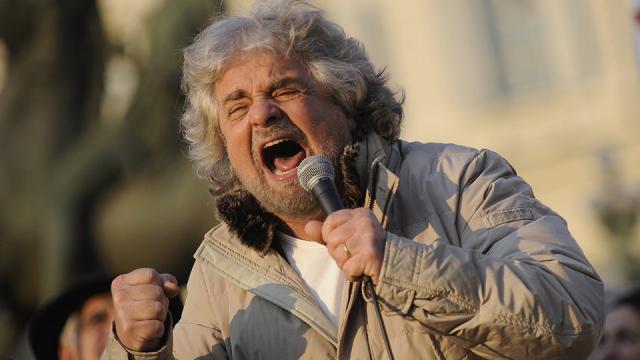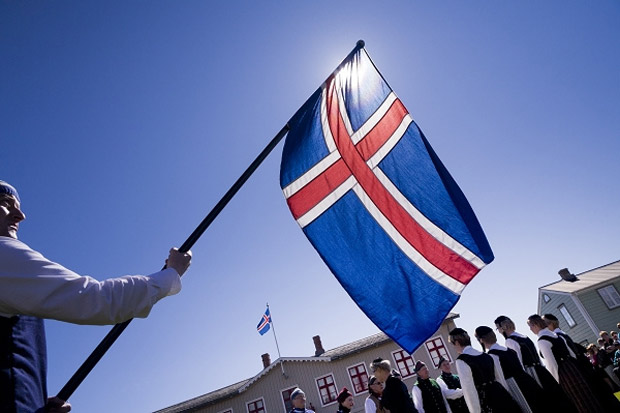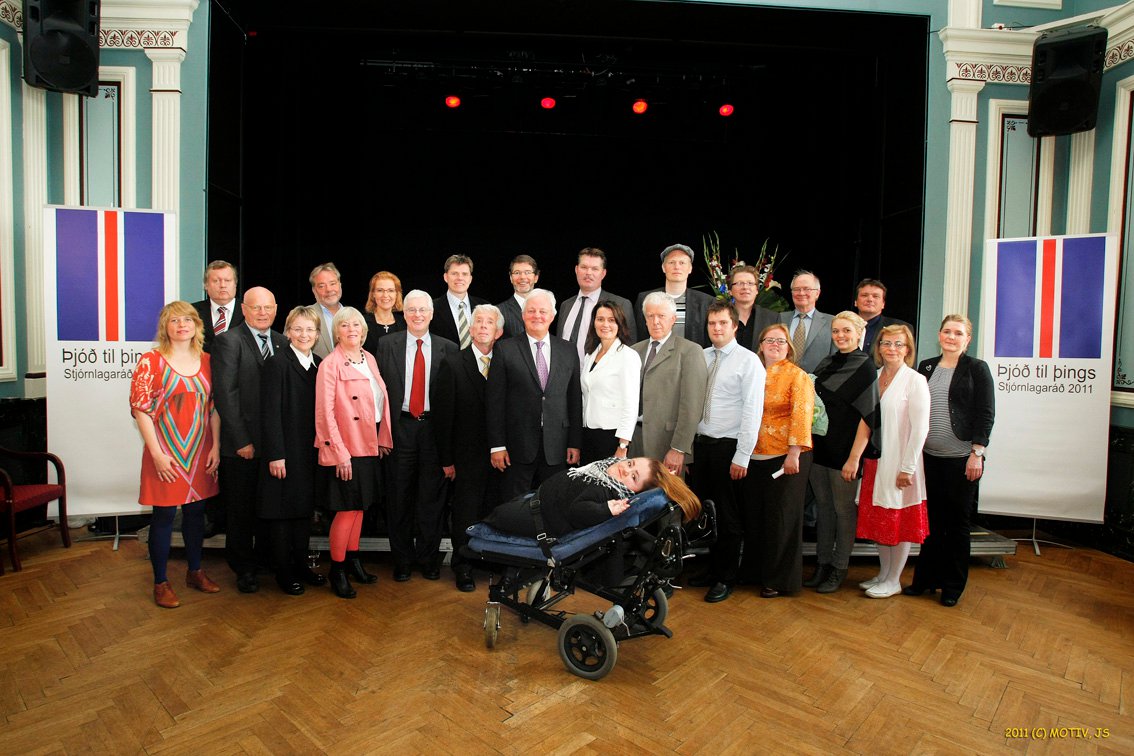
The use of the Internet as a means of spreading political ideas and organizing social movements has sent shockwaves throughout the political establishment over the last few years. And as political and economic elites scramble to seize total control over what is currently a free, transparent and equal online environment, citizen activists and other individuals are paving the way for a new type of political mobilization never yet seen. Their tactics include direct democracy and a complete disregard for current political parties. The movement that has perhaps best embodied this trend is “Il movimento cinque stelle,” or the Five Star Movement in Italy.
Beppe Grillo, the leader and main spokesman of M5S, has built the movement's status and influence chiefly through one medium: the Internet. What began as a blog for his political ranting evolved into a formidable political movement. In the middle of 2005, Grillo launched a “Meetup” station on his blog. He encouraged those who were intrigued by his ideas to begin to meet up in person and to begin to organize face-to-face.
Around 2009, the movement began to take root. Grillo, with the help of his friend and “digital guru” Robert Casaleggio, toured 73 locations around Italy, building an online presence and galvanizing a young, distraught and indignant Italian population whose youth are stuck with a 35 percent unemployment rate.
The five stars, representing the core principles of Grillo’s movement – public water, sustainable transport, development, connectivity, and environmentalism, not to mention a staunch anti-corruption and anti-austerity stance – resonated with the aggravated Italian population; the party secured 25.5% of the vote in Italy’s general election held in February, which equated to 163 of the Italian Parliament’s 630 total seats, denying the frontrunner Pier Luigi Bersani the clear majority he needed to form a working government.
On top of that, the Five Star Movement used perhaps the most important tactic yet: it will not, Grillo vowed, form a coalition government with either of Italy's two major political parties, which Grillo has deemed are corrupt beyond repair. In an early move to show the movement's commitment to transparency, public transport, the environment and access to water, one of the M5S’s delegates posted his lunch bill on the Internet, while others took public transport to Parliament — only to be dismayed that the water in Parliament must be drunk with a plastic cup.
On another important front, the Pirate Party — devoted to reforming copyright and patent law, protecting civil liberties and promoting direct democracy and transparency in government — has stormed into parliament in several different countries in Europe in recent years.
The party was officially founded in Sweden on January 1, 2006, with the launch of a website by Rick Falkvinge, the Pirate Party’s founder. In the Swedish elections that took place nine months later, the party garnered .63% of the vote. The Swedish Pirate Party (Piratpartiet) received about .7 percent of the vote in the parliamentary elections in 2010, making it the largest Swedish political party outside of Parliament (it did not win any seats). Most importantly, in 2009, the Pirate Party got 7% of the Swedish votes for the 2009 European Parliament elections, which earned the party two seats in the European Parliament after the ratification of the Lisbon Treaty.
In Germany, the Pirate Party (Piratenpartei) captured 8.9 percent of the vote in Berlin in 2011, winning 15 out of 141 seats in the city parliament. Last year, the Pirates received 7.4% of the vote to win four seats in Saarland; 8.2%, or six seats, in Schleswig-Holstein, and 7.8%, or 20 seats, in North Rhine-Westphalia.
Further north, on April 27 of this year, the Pirate Party took three of 63 seats in the Icelandic Parliament, winning 5.1% of the vote. Parliamentarian Birgitta Jonsdottir, who has worked with Wikileaks and who rose to prominence after Iceland kicked out its government, is one of the three Pirate members in the Parliament and calls the party the “political arm of the information revolution," one dedicated to freedom of expression and political transparency.
Iceland is becoming a beacon of how to implement and experiment with digital, direct democracy. The country is attempting to draft the first crowdsourced national constitution, a process by which Icelanders submit ideas and contribute through social media websites such as Facebook and Twitter directly to an elected committee drafting the document.
Political parties in Iceland are coordinating with a non-profit organization known as the Citizens Foundation that offers an online platform on which users can debate and suggest policies. Participants can “like” policy ideas, from micro-issues to major budget decisions which affect their community. Those policies that are “liked” enough times move their way up the priority list, spurring faster action.
For these reasons, our political leaders and the corporate entities that control them are scrambling so diligently to stifle and control the Internet. Whether it is SOPA, PIPA, ACTA, CISPA, the ITU, the secret chapters on intellectual property rights in the Trans-Pacific Partnership, or the legislation that aims to fine technology companies for failing to comply with wiretap orders: those in power are attempting to shut down and monitor any opportunity for citizens to express political opinions in the digital world and to mobilize around those opinions – using outdated copyright law as a justification.
“No longer bound by conventional political rules of engagement,” writes Gerald Celente in the Spring 2013 issue of The Trends Journal, “freed from the necessity to raise mega-millions to wage campaigns and no longer solely reliant on media approval for coverage, the Internet candidate will be a new-millennium voice speaking a new-millennium language that appeals to the politically disenchanted and disgusted.”
3 WAYS TO SHOW YOUR SUPPORT
- Log in to post comments

















